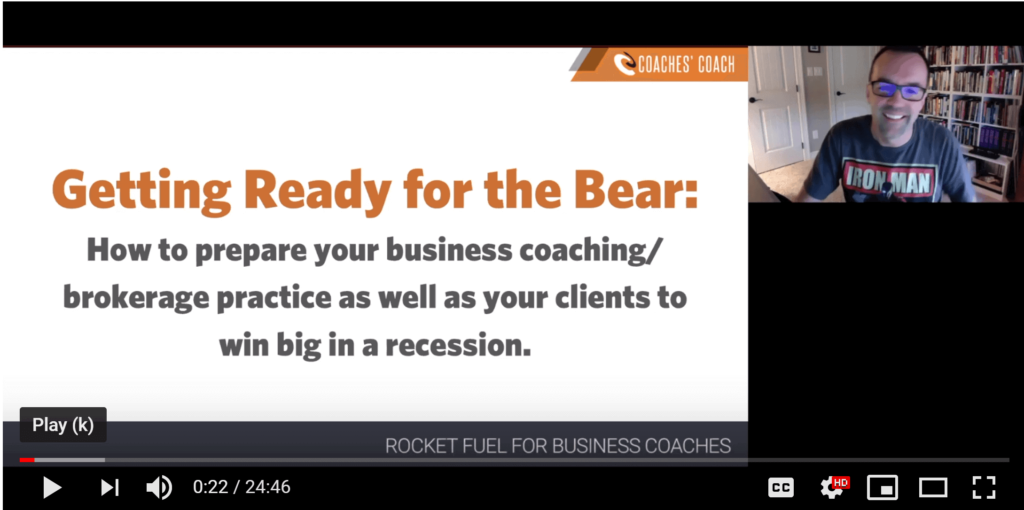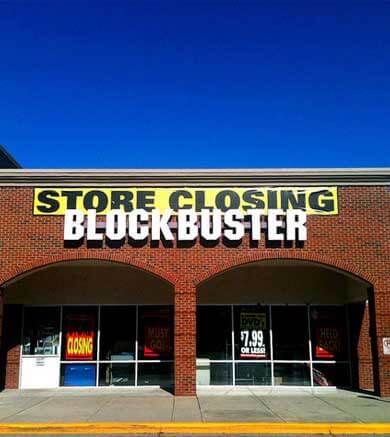
by Eric Dombach | Results
In August of 2018, John Nieuwenburg banked $30,000 in business coaching fees for the first time ever since his career as a business coach began in 2004. And in March of this year, just 7 months later, he’s hit a new record of more than $40,000 in business coaching fees in a month. This is truly rare, as very few coaches break the $40k mark.
“First time at this threshold,” John said in an excited email to me with these results.
Now I’m sure you want to learn just how he did it. For starters, check out our earlier post from when he broke his first record of $30,000! Want more specific coaching? Talk to the man himself here!
Welcome to the elite of the elite, John!
Want help with this? Reach out to John here!

by Eric Dombach | Business Coach Training
Generating leads and business coaching prospects is important–but it’s only half the battle. Once you’ve generated them, it’s time to move them along in your sales process until they sign on the dotted line!
But if you’re like most business coaches, you’re often caught in an endless cycle of follow-up–where you’ve made a promising connection, even set a time and date for a sales appointment–but seem to have a hard time connecting again.
This isn’t unusual: business owners are busy people, just like you.
But if you’re going to turn business coaching prospects into clients, you have to find a way through the follow-up cycle of doom!
So how do you get prospects to keep their sales appointments? Follow this simple five-step process.
Step 1. Send an immediate email
On the same day you make the appointment, shoot them a quick email:
Thanks for talking with me about your business! It sounds like you have an excellent thing going!
I’m looking forward to our phone appointment on DATE at TIME.
Just to summarize, I’ll be prepared to discuss how we can work together to develop [USE THE APPROPRIATE SILVER BULLETS HERE] and anything else that may be helpful to you in achieving your business goals!
Be on the lookout for a packet of introductory material I’ll be sending your way.
Step 2. Send the info packet
Within 24 hours of booking the appointment, send an information packet in the mail that includes:
- A very brief cover letter confirming your appointment on its designated date and time.
- A folder branded with your logo.
- An information sheet about your practice.
- Your sizzling hot bio.
- A page of client testimonials and references.
- Any local/industry articles you’ve found about the benefits of business coaching.
Step 3. Reminder email
On the day before your appointment, send another email:
Just wanted to make sure you got the information packet I sent in the mail. I’m looking forward to our appointment tomorrow at TIME!
Step 4. Make the call
On the day of the appointment, be sure to call about five minutes ahead of schedule. This way, if you have a technical problem or run into some other issue, you’ll have time to correct it before being late.
Step 5. Roll with the punches
What do you do if you’ve done all that–and your business coaching prospect still fails to show?
First, remember: there will always be a percentage of prospects who don’t show up, regardless of how well you’ve used this system.
Immediately after the missed appointment, send another email:
I called you at TIME for our appointment but was unable to reach you. Are you still interested in talking more? Feel free to get back in touch and we’ll reschedule!
If they still don’t respond, follow up relentlessly. Don’t get discouraged. They’re busy business owners, and your professional persistence may be what it takes to break through.
Don't get discouraged. They're busy business owners, and your professional persistence may be what it takes to break through.
Leave two messages per week: once in the morning during the first half of the week and once in the afternoon during the second half of the week. Call daily in between, but don’t leave messages then. Never assume they’re no longer interested until they tell you directly. After all, they owe it to themselves to give themselves the best possible chance at success in business, and you’re modeling for them the kind of accountability and follow-through they need to develop to make it happen.
Looking for more great insights like these on building a successful business coaching practice? Download our FREE ebook, Secrets of a Business Coaching Rockstar.

by Eric Dombach | How to Become a Business Coach
In order to become a business coach, your first step is to find or create a business coaching curriculum.
This is a critical key to your success and many beginners overlook it. They think that by simply having expertise, they can jump in and solve business problems for clients.
In fact, failure to present an effective, step-by-step methodology that helps you solve business problems for executives and entrepreneurs in your market will doom your efforts to become a business coach.
On the other hand, going to market with a proven method for increasing revenue and profits will make you the go-to person for entrepreneurs in your community or industry niche.
So what should you do? Finding a business coaching curriculum boils down to essentially three options:
1. Create Your Own Curriculum
If you already have experience as an executive or entrepreneur, you can design your own business coaching curriculum with the hardfought lessons you’ve gained in the real world.
Pros of this approach: This can be the best way to create something truly unique and disruptive in the marketplace.
Cons of this approach: It takes significant time, effort, and money to create a curriculum–perhaps many years and hundreds of thousands, if not millions, of dollars. In addition, knowing how to do something is one thing, while knowing how to teach others how to do something is another skillset entirely–and the one doesn’t always translate easily to the other.
Bottom line: Use this if you’re a leading 1% thought leader with significant expertise, drive, and resources to launch an international brand.
2. Get Certified or Licensed in Another Methodology
From business coaching franchises to other training models, you can find a business coaching curriculum that will allow you to operate under an existing brand.
Pros of this approach: If you lack executive or entrepreneurial expertise yourself–or aren’t sure how to translate your on-the-ground experience into an actionable training system–this can be one of the fastest ways to get up and running. In addition, if the brand is well-known, it can provide some immediate name recognition.
Cons of this approach: It usually requires a significant ongoing investment (such as a monthly or yearly fee, plus a percentage of sales), and you grow the brand of the licensor as opposed to your own. You are also frequently subject to geographical or other restrictions under this model.
Bottom line: Use this if you lack business experience, are just getting started in business coaching, and/or aren’t sure how to translate your expertise and experience in business to learning for others.
3. Use (and/or Modify) a White-Label System
Find a curriculum that allows you to operate on a white-label basis–in other words, you can use a fully-developed curriculum and apply your own branding, innovations, and market-specific modifications. (Full disclosure: this is what we offer here at the Coaches’ Coach–and though we’ve done our best to ensure our assessment of the pros and cons of each option are as fair as possible, there’s no question we’re biased to this approach for most.)
Pros of this approach: It is significantly more affordable than the license/certification approach and gets you up and running just as quickly. At the same time, you can make your own unique modifications to better serve your clients and build your own brand.
Cons of this approach: While there’s plenty of flexibility in a white label approach to make your own modifications, you aren’t inventing something entirely new out of whole cloth. In addition, you don’t get any name recognition from an established brand (though the value of brands can vary widely, so do your homework).
Bottom line: Use this if you want to build your own brand (as opposed to someone else’s), want a head start in creating your own curriculum, and/or want a comprehensive system without the high cost of certification/licensing options. This can be a good option for beginning, intermediate, and advanced coaches alike.
However you go about it, finding or creating a fantastic business coaching curriculum is crucial to your success as a business coach!
However you go about it, finding or creating a fantastic business coaching curriculum is crucial to your success as a business coach! What else do you need to know about starting a business coaching practice? Check out our FREE ebook, How to Become a Business Coach to find out!

by Eric Dombach | Business Coaching Tools
You’ve probably been hearing the speculation about the looming bear market that the economists are predicting will broadside us sometime in 2020 or 2021. How can you get your business coaching practice ready for it?
I recently chatted with Andy Clark and Alan Melton (both Certified Coaches here at the Coaches’ Coach) about what we do RIGHT NOW to be ready to take advantage of the opportunities that abound in a bear market.
Here’s the 25-minute interview.
You’ll like the questions we discussed…
- What can we easily observe from the history of U.S. Bear & Bull Markets since 1926?
- How well did you prepare yourself and your clients as a business coaching/broker just before the last bear market started in 2008?
- How well did you survive or thrive during that period and what did you learn from it?
- What are you doing right now to prepare your business coaching/brokerage practice and your clients for the next bear market?
- What would be your best nuggets of advice for business owners, coaches, and business brokers as we head toward the bull market peak?

Alan Melton’s perspective as a business coach and business broker coach is fascinating and helpful. Alan has coached and advised 1000’s of small businesses and he banks more than $25,000/month in business coaching fees on top of the money he makes as a business broker, selling his clients’ businesses. Before founding both Small Business Coach and Empire Business Brokers in South Carolina, Alan co-founded and served as CEO of a company that he grew from 2 employees to 130 employees, $8.5 million in sales, and profits in excess of $1.5 million per year. Upon selling to a publicly traded company, he gave more than $1M to his employees.
Likewise, Andy’s perspective about the upcoming bear market combined with Brexit brings international insight. Andy Clark is the Founder of Practice Building, the most respected business coaching firm in the UK optical niche. Andy and his team generate more than £30,000 per month in business coaching revenue and another £10,000 per month in done-for-you marketing services.
We hope you love this short webinar as much as we enjoyed making it for you!
Here’s that link again to the interview recording…
P.S. There’s no pitch and nothing being sold on this webinar. Just some good old-fashioned value for you, our readers. Hope you enjoy this fireside chat!
Looking for more timely resources like these? Become a Coaches’ Coach member! Get a FREE 30-day trial of our comprehensive coaching system and see for yourself what a difference it can make in your business coaching practice.

by Eric Dombach | Business Coaching Franchise
From its inception, the business coaching industry has been dominated by business coaching franchises. That’s because business coaching is usually a “solo” enterprise, and it can be difficult to keep yourself properly trained and motivated without solid support and a proven system. In the early part of the ’00s, as demand for business coaches grew among entrepreneurs and business owners of all stripes, business coaching franchises sprouted up as a way to fill the training and support gap for aspiring coaches.
Unfortunately, in too many cases, the franchisors simply didn’t deliver–and franchisee fail rates across the industry grew at an alarming pace.
This all came to a head in October 2008, when the global economy crashed…and suddenly, the tens or even HUNDREDS of thousands of dollars required to buy a business coaching franchise all but destroyed these franchises as a viable option for most aspiring coaches.
At the same time, business coaching franchisees began failing in droves because of crippling franchise fees and unproven systems in the midst of all the panic.
Through it all, demand for business coaching actually INCREASED, as more and more entrepreneurs came to understand that if they want to survive in troubling economic times, they need help.
So what does this mean for the industry in a time when economists are predicting the next bear market within a couple of years?
Demand for business coaching will continue to increase…while demand for business coaching franchises will continue to decrease.
Demand for business coaching will continue to increase...while demand for business coaching franchises will continue to decrease.
Remember Blockbuster?
As an industry, movie entertainment is here to stay. But the Blockbuster model for providing that entertainment, physical video rental stores, is dead, thanks to streaming services like Netflix and Amazon Prime.
In business coaching, it is now possible for coaches to acquire both the ongoing support and proven system they need to succeed, WITHOUT the high costs of business coaching franchises. Thanks to the same types of advancement in digital technology that impacted Blockbuster, business coaches can now tune into thriving virtual communities (such as on LinkedIn), as well as choose subscription-based training and coaching system delivery models that have been proven in the field — for a fraction of the cost of business coaching franchises (such as the Coaches’ Coach).
With monthly business coaching franchise royalties ranging from $1000 to $1800 per month, business coaching franchises have become the “bricks and mortar” dinosaur of the business coaching industry.
As one frustrated former franchisee wrote me a while back in a completely unsolicited comment:
“Eric, where were you BEFORE I lost hundreds of thousands of dollars on my [coaching] franchise. Today, with the non-franchise resources that are available, it really makes no sense to buy a franchise…”
For more insight on all this, you can download our resource on the state of the business coaching franchise industry, The Business Coaching Franchise Buyer’s Guide.
Maybe you disagree with me? If you think I’m all wet, tell me so. Use the comments section below to share with me all your opinions on where the business coaching industry is heading!






